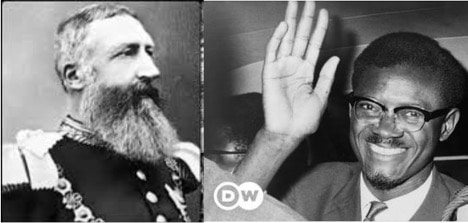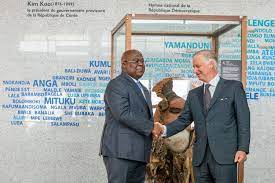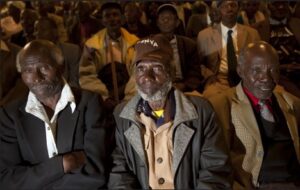Patrice Lumumba was the first prime minister of the Democratic Republic of Congo. But his martyrdom has made him as much the face of Pan-Africanism as MLK’s has made him the face of Black civil rights.
This is why even I can appreciate the “closure” the return of Lumumba’s remains represents for his family. Never mind the obvious question: Why did it take Belgium so long to return them…?
But a gold tooth (and finger bones) are not quite the “Elgin Marbles,” which feature gods repose and processions of men. Lord Elgin infamously stole them from the Acropolis in 1801. And the Greeks have been demanding their return from Britain ever since.

This is why, for decades, Congo has been demanding $40-50bn in reparations from Belgium for the “painful episodes” of the colonial era with its “acts of violence and cruelty.”
Here, for example, is how Reuters recounted some of that violence and cruelty in a report on the state visit to Congo of the Belgium’s purportedly progressive King Philippe on June 8:
_________
- As many as 10 million people are estimated to have died in Congo from killings, famine and disease between 1885 and 1908 after Belgian’s King Leopold II declared the vast territory his personal property.
- Under the mantle of propagating Christianity and trade in Africa, Belgium exploited Congo’s riches, including rubber.
- Forced labour, corporal punishments, kidnapping, and slaughtering of rebellious villages were among other atrocities recorded during the period.
________
Yet the Belgian government has steadfastly responded to Congo’s demand with mere words. Even worse, none of those words have been in the form of the apology Congo has been demanding as well.
 This vexing impasse was thrown into distressing relief during Philippe’s visit. Because there were great expectations that he would at least issue a formal apology at long last.
This vexing impasse was thrown into distressing relief during Philippe’s visit. Because there were great expectations that he would at least issue a formal apology at long last.
Except it did not take long for those expectations to be dashed. This is why every word the king uttered soon took on the anxious spectacle of The Fonz from Happy Days struggling to say, “I’m sorry.”
In the end, Philippe merely reiterated the hackneyed words of regrets for Belgium’s colonial past.
For the record, Germany has apologized for its colonial crimes in Namibia. The United States has apologized for the crime against humanity its institution of slavery constituted. And, of course, Britain set a precedent by not only apologizing but paying reparations for colonial crimes in Kenya in 2013.
 As it happens, I called on Britain to do so a year earlier. The way I did obtains for Belgium too:
As it happens, I called on Britain to do so a year earlier. The way I did obtains for Belgium too:
If the British government has any regard for what little redeeming value its legacy of colonialism retains, it would consider it a moral imperative to move post-haste to negotiate a victims’ fund with the Kenyan government, from which all victims can seek relatively fair compensation … in Kenya.
Incidentally, this would (and should) not absolve the government of the categorical imperative to pursue and prosecute every British official implicated in these human rights abuses. …
Accordingly, I fully expect Britain, at long last, to do the right thing: apologize and pay, pursue and prosecute!
(“Reparations for British Colonialism,” The iPINIONS Journal, July 18, 2012)
Related commentaries:
British reparations… commemorating Juneteenth…